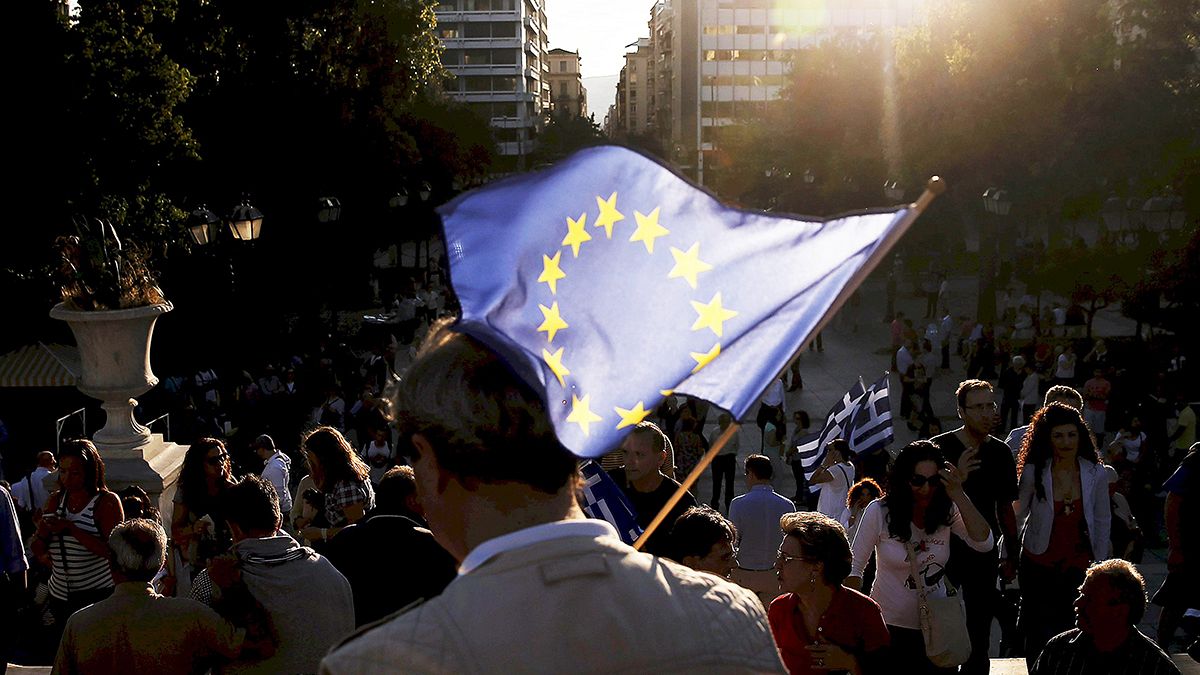Inching towards debt redemption, the negotiations between Greece and its emergency lenders have raised the occasional mention of the word ‘Grexit’
Inching towards debt redemption, the negotiations between Greece and its emergency lenders have raised the occasional mention of the word ‘Grexit’ over the past few months — but quietly, because if they failed it could hardly be good for the euro.
As a countdown spurred on Greek Prime Minister Alexis Tsipras and Finance Minister Yanis Varoufakis, on Monday evening Greek government officials proposed a primary budget surplus of 1 percent this year and 2% next year (spending not counting interest on debt).
Boosting public revenue is supposed to come from raising taxes, notably the solidarity tax for higher income earners — those with more than 50,000 euros per year while lowering the tax on less than 30,000 euros.
The offer introduces a solidarity tax of 8% on revenues above 500,000 euros.
The tax plans would include raising corporate tax to 29% and a special levy of 12% on businesses that post a profit of over 500,000 euros.
There are also increases in luxury tax on pools, planes, big cars and yachts.
Greece wants to keep three value added tax rates, and is aiming lower than its creditors: 6% VAT on books and medicines, and not 11% as sought by lenders, and restaurants to be taxed at 13 percent instead of being raised to 23%.
Early retirement would be curbed gradually from 2016 to 2025, with some exemptions, such as concerning people in especially hard jobs and mothers with disabilities.
A special 57-230 euro monthly benefit for some low-income pensioners would be kept, and revised in 2020. The lenders want this scrapped.
Greece proposes that privatisations impose a minimum amount of investment, a commitment by investors to promote the local economy, and to invest towards environmental protection and workers’ rights.
Athens rules out the transfer of Greece’s state equity in Greek telecoms to the country’s privatisation agency.
Greece will not privatise its power grid operator or its dominant power utility.
Athens also proposes to cut defence spending by 200 million euros.
This new (Monday June 22) proposal on how to solve the Greek debt crisis was met with a largely positive response from eurozone leaders.
Officials from the International Monetary Fund (IMF), European Central Bank (ECB) and European Commission are busy working out the details and a final agreement is scheduled to be presented to Greece’s international creditors this Thursday (June 25).
While Tsipras may be making headway with his creditors, the question now is whether he can sell the agreement at home.
Janis Emmanouilidis, Director of Studies and Head of Programmes at the European Policy Centre in Brussels, spoke to Efi Koutsokosta about the challenges still ahead.
Efi Koutsokosta, euronews: It’s the first time after five months of this Greek drama that it seems that we are very close to an agreement. Do you see finally a fair compromise?
Janis Emmanouilidis: Obviously, the Greek government had to give in on many issues; it’s not really linked to what they had proposed before the elections – that includes a lot of measures to increase taxes in order to increase income. So it’s a compromise, which, seen from the Greek perspective, is not one that reflects what the Greek government, what SYRIZA had wanted, but more reflecting what the partners had asked for. It is a compromise in a difficult situation, but if there is no compromise, the outcome would probably be much worse.
euronews: There is still no agreement. What should we expect over the next two days, until the Eurogroup meeting on Wednesday?
Emmanouilidis: There is one question in the air which needs to be settled, which is also something that the IMF was strongly pushing towards, which is debt sustainability. Will it be some kind of reference to the level of Greek debt, to whether the issue will be taken up in the future? However, a reference which goes beyond what was already promised at the end of 2012 was that debt sustainability will be something which is going to be analysed and checked.
euronews: [IMF chief] Christine Lagarde said that there is still a lot of work to be done. Is it possible that the IMF could no longer be on board for the next agreement?
Emmanouilidis: I think this is very difficult. If you look at key players, especially Berlin – also others but especially Berlin – they are very eager to have the IMF on board and they are still very eager to have the IMF on board.
So, I think the chances are strong that the IMF will, in the end, be part of this but, again, this is not the end of the Greek saga; there will be a continuation because there is more to come and the IMF certainly also plays a role.
euronews: The Greek government has made a lot of concessions on the way to an agreement. Is it going to be easy to convince the people back home?
Emmanouilidis: This is the next step. In a way, after negotiations the ball will be in the Greek court. There will have to be discussions within SYRIZA, within the government, with the independent Greeks, as they want a majority in parliament to get it through. This will not be easy.
On the other hand, it seems there is some opposition but they still have a majority of 12 members of parliament; the question is, will they be able to defend their majority? I think that there are chances that it will happen but it won’t be easy.



